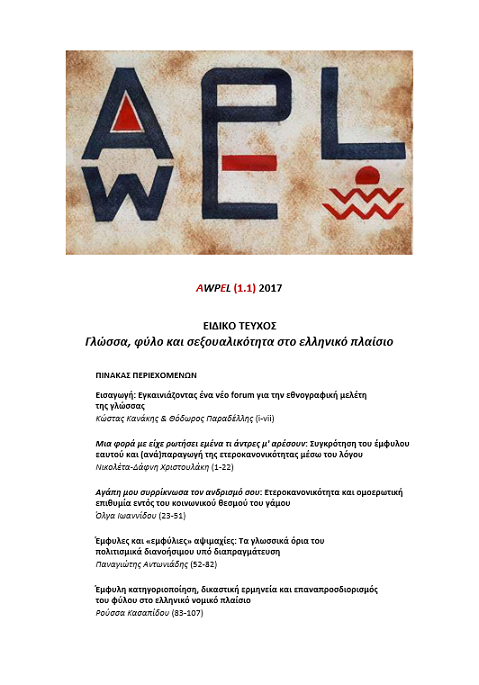Έμφυλη κατηγοριοποίηση, δικαστική ερμηνεία και επαναπροσδιορισμός φύλου στο ελληνικό νομικό πλαίσιο
Abstract
This article examines the premises of gendered categorization and gender reassignment within the Greek legal context as they have evolved throughout the 20th century reaching to the current day. An attempt is made to understand “category” as a notion of historical as well as political content as opposed to its earlier uniform pseudoobjective view. Gendered categorization within the law is then connected with the power invested in the judicial interpretations of legal texts (and legal silences) in cases of contested gender legal recognition. Interpretation is analyzed as an instance of power, a mode of safeguarding (through naturalizing) the status quo of gender categories in the law. Finally, the last part of the article catches up with the latest legal developments on the issue of gender legal recognition in Greece up to late 2016.
Article Details
- Zitationsvorschlag
-
Κασαπίδου Ρ. (2017). Έμφυλη κατηγοριοποίηση, δικαστική ερμηνεία και επαναπροσδιορισμός φύλου στο ελληνικό νομικό πλαίσιο. Aegean Working Papers in Ethnographic Linguistics, 1(1), 83–107. https://doi.org/10.12681/awpel.14419
- Rubrik
- Articles

Dieses Werk steht unter der Lizenz Creative Commons Namensnennung 4.0 International.
Authors who publish with this journal agree to the following terms:
Authors retain copyright and grant the journal right of first publication with the work simultaneously licensed under a Creative Commons Attribution licence that allows others to share the work with an acknowledgement of the work's authorship and initial publication in this journal.
Authors are able to enter into separate, additional contractual arrangements for the non-exclusive distribution of the journal's published version of the work (e.g. post it to an institutional repository or publish it in a book), with an acknowledgement of its initial publication in this journal.
Authors are permitted and encouraged to post their work online (preferably in institutional repositories or on their website) prior to and during the submission process, as it can lead to productive exchanges, as well as earlier and greater citation of published work (See The Effect of Open Access).



